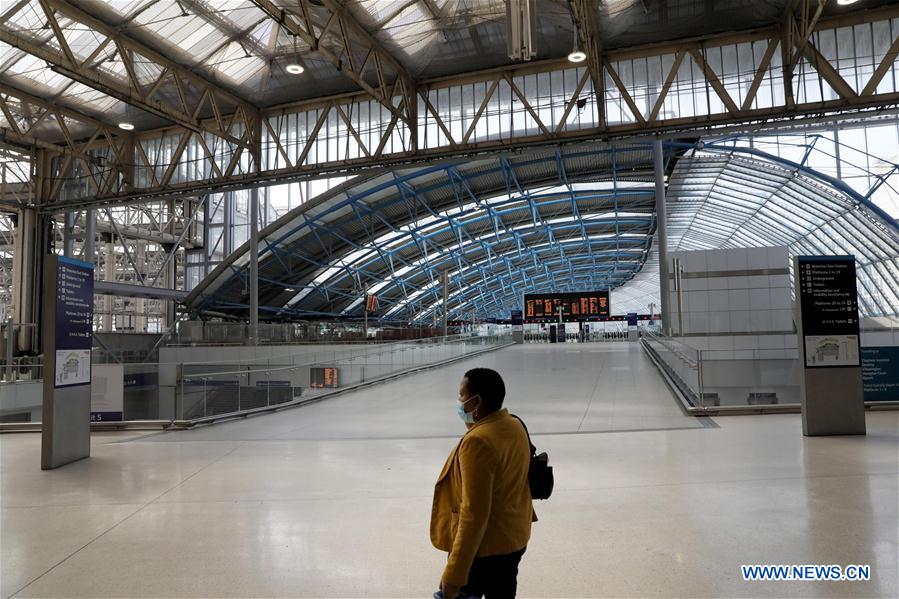
A pedestrian is reflected in a window of a closed dining room and bar of The Smith in New York, the United States, March 26, 2020. (Photo by Michael Nagle/Xinhua)
Amid COVID-19 fallout, 22 million Americans have filed for unemployment benefits in the past four weeks.
WASHINGTON, April 16 -- Newly released data showed that 5.2 million Americans filed initial jobless claims last week, bringing the four-week total to a staggering 22 million, as the COVID-19 fallout continues to ripple through the U.S. workforce.
In the week ending April 11, the number of people filing for U.S. unemployment benefits decreased by 1.37 million to 5.25 million, following figures of over 6 million in the previous two weeks, the U.S. Bureau of Labor Statistics reported Thursday.
Jared Bernstein, a senior fellow at the Center on Budget and Policy Priorities, said on Twitter that the four-week sum is nearly 10 times of previous four-week high.
The four-week total erased job gains during the decade-long expansion that began in mid-2009, Bloomberg reported, while noting that the latest figures suggest a current unemployment rate of around at least 17 percent.
Michael Hicks, director of the Center for Business and Economic Research at Ball State University in Indiana, however, told Xinhua that "today's initial jobless claims provided the first glimmer of hopeful economic news in weeks."
"Though the initial claims were very high, at 5.2 million, this is a deceleration from last weeks 6.6 million," Hicks said via email. "The encouraging part is that slowing job losses are a sign that earlier reports were not terribly understated because of a backlog in unemployment insurance claims."
Bernstein, meanwhile, noted that getting unemployment insurance compensation to laid-off workers is still clogged, urging the federal government to provide more help to states.
Hicks, who had estimated about 28 million U.S. workers were at risk of losing jobs due to the COVID-19 pandemic, said the slower growth in initial jobless claims "also suggests that estimates of 'at risk' jobs made last month are likely correct and we are not experiencing accelerating job losses as consumer spending and business investment drop."
As COVID-19 continues to sweep across the country, most states and local officials have closed non-essential businesses and ordered residents to stay home in a bid to slow the spread of the virus, effectively shutting down a significant part of the economy.
According to the Federal Reserve's latest survey on economic conditions, known as the Beige Book, released Wednesday, employment declined in all districts as the COVID-19 pandemic affected firms in many sectors.
"Employment cuts were most severe in the retail and leisure and hospitality sectors, where most districts reported widespread mandatory closures and steep falloffs in demand," the survey said, adding that severe job cuts were also widespread in the manufacturing and energy sectors.
Noting that Wednesday's retail data, despite overall decline, points to large increase in grocery store and online purchases, Hicks said many workers might be transitioning from restaurants and retail to grocery and online sales positions.
"Contacts in several districts noted they were cutting employment via temporary layoffs and furloughs that they hoped to reverse once business activity resumes," the Fed survey said, noting that the near-term outlook was for more job cuts in coming months.













